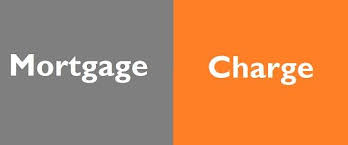If the bank grants real estate loans, it also wants to secure them. There are several possibilities for that.
A single-family house is getting on in years and comprehensive renovation is urgently needed. But the owner often lacks the necessary capital for this. Anyone who has not saved for it needs a real estate loan. As a rule, banks want security from their customers – either in the form of a mortgage or a land charge. Both are property liens that are entered in the land register in the amount of the loan amount in favor of the bank.
“This gives the bank the right to sell the property if the borrower is no longer able to repay the loan installments,” says John Semler. He is the founder and board member of the Federal Association of Real Estate Financiers and owner of the construction financing company BaufiTeam in Sittensen. In the worst case, the owner is threatened with foreclosure of his property if he can no longer pay the loan installments.
What is the difference between a mortgage and a loan?
And which of these mortgages usually comes into play? “The term mortgage is often used as a synonym for a mortgage loan – i.e. a real estate loan,” explains Sylvie Ernoult from the Association of US Banks. A mortgage loan is long-term financing secured by real estate. A mortgage is a security for a loan in the land register. It is always tied to a specific loan. This means that the amount decreases with each repayment installment. It expires as soon as the loan has been repaid in full. A mortgage as a lien on real estate is rather rare in practice today.
As a rule, a land charge is entered in the land register to secure the loan claim, explains Ralf Scherfling from the NRW consumer advice center in Düsseldorf. This exists independently of the loan. It is entered in the land register in the amount of the loan taken out. However, it is not reduced parallel to the remaining debt.
Once the loan has been paid off, the property owner can request that the land charge be deleted from the land register. However, the creditor, i.e. the bank, must agree to this. The advantage of a mortgage: The amount of the mortgage always remains the same. This means that it can also be used as security for a new loan, explains Ernoult. Once part of the debt has been paid off, a new loan can be taken out up to the amount of the land charge.
The advantage of a mortgage
Due to the security in the land register, it is usually cheaper than an installment loan, explains Scherfling. In principle, it is possible to have several mortgages per property.
The disadvantage of a Mortgage
The mortgage is tied to a specific claim. If the need for credit increases, a new mortgage may be necessary. This incurs costs – in addition to interest, notary costs and the costs for entry in the land register, among other things. Another disadvantage: “An owner cannot sell a house as long as mortgages are registered in the land register,” says Scherfling. Before a sale, mortgages must be paid off, the land register must be unencumbered in this regard.
Notaries and land registries calculate their fees for registering a land charge or mortgage according to the amount and the type of work involved. The basis are the fee schedules of the notaries and the land register fees. Important to know: “Notary and land registry fees are to be paid to third parties and not to the bank,”. Therefore, they are not included in the cost of the loan reported by the bank. There are also other alternatives to a classic real estate loan: “Large employers often offer their employees loans,” says Semler. The employer contributes a certain sum to the purchase of the property. In addition, some investment banks in the federal states have discounted loans on offer.
Also Read: 7 ways to get capital to start your business


